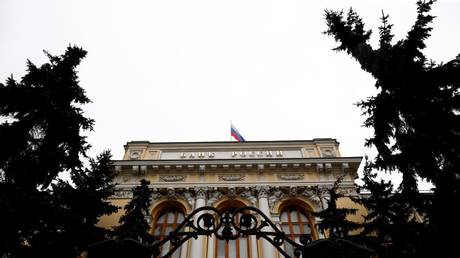Stock markets across the world sold off sharply on Thursday after the Russian Armed Forces confirmed the first airstrikes against military targets in Ukraine. President Vladimir Putin ordered the operation in the Donbass region to protect the local population against Ukrainian shelling attacks, days after recognizing the breakaway republics of Donetsk and Lugansk.
The pan-European Stoxx 600 fell by over 3%, with the financial sector leading the losses, sending major bourses sliding into bear territory.
European banks most exposed to Russia, including Austria’s Raiffeisen Bank, UniCredit and Societe Generale, fell between 5% and 6.6%, while the wider banking index SX7P dropped 4.3%.
Germany’s DAX declined by more than 4% to March 2021 lows, bearing the biggest brunt of the selloff on concerns about the country’s deep reliance on energy supplies from Russia.
UK’s commodity-heavy FTSE 100 saw a decline of 3.75%. Europe’s oil & gas index SX7E lost the least among sectors, down 4.32% as oil prices soared around 8%, pushing Brent crude past $105 a barrel for the first time since 2014.
Asian economies are projected to face lower risks than Europe. However, those that need imported oil might get hit by higher prices if supplies from Russia, the world’s second-largest producer and exporter, are disrupted.
Major bourses in the region also saw notable declines. The Nikkei 225 in Tokyo fell 1.81% and the Hang Seng in Hong Kong lost 3.21%. The Shanghai Composite Index was down by 1.70%. The Kospi in Seoul lost 2.6%, Sydney’s S&P-ASX 200 fell 2.99%, New Zealand lost 2.8%, with other Southeast Asian markets also trading in the red.
On Wall Street, the Dow Jones Industrial Average fell by 1.62% at the opening bell on Thursday, the S&P 500 dropped .84%, and the tech-heavy Nasdaq was trading flat in early trading.
For more stories on economy & finance visit RT's business section


